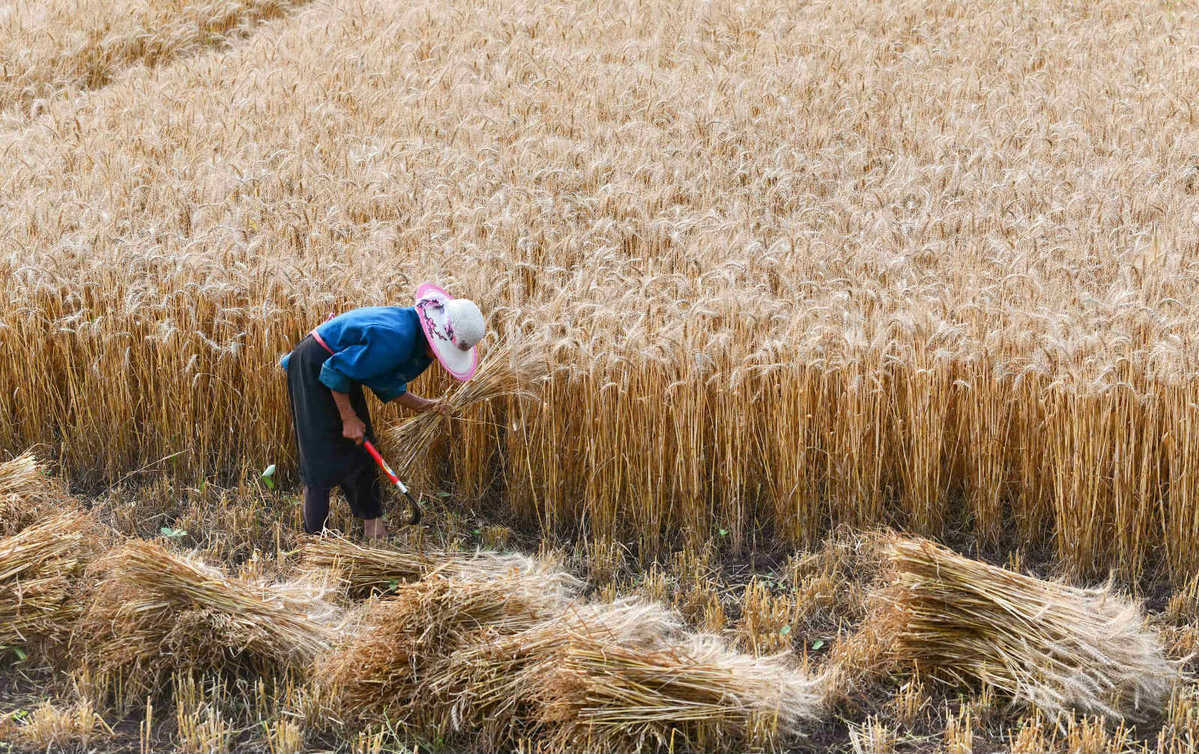
A farmer reaps wheat in a field in Wushi village, Sinan county, Guizhou province. [Photo: YANG WENBIN/XINHUA]
At a recent high-level meeting for next year's economic development, the top authorities said the country will consolidate its agricultural foundation and the achievements of poverty alleviation measures to promote the revitalization of rural areas.
That is like securing one's own rice bowl. The country should stabilize its food supply and safeguard its food security. It should try to maintain its grain production capacity to ensure enough grain output and guaranteed supply.
This is because global agricultural production is more easily affected by extreme weather conditions, which have become more frequent. China is greatly affected by climate change, and once the tight balance of the country's grain supply and demand is broken, a grain security problem will emerge, undermining the country's social stability and economic development.
More important, China must strengthen the agricultural foundation and better protect the "strategic backyard" of its agriculture, to seize the initiative for economic and social development. That is to say, China must hold firmly to the bottom line of national food security, maintain stable grain production and lay a more solid foundation for its economic development and social stability.
To realize this goal, the country must take targeted and effective measures and put them into practice. It should work out specific plans for the output of major grain varieties such as rice, wheat, corn, and soybean, with clear objectives and tasks, working mechanism, input guarantee and technological path. It should increase the policy support for grain production and boost farmers' cultivation enthusiasm. At the same time, the country should increase the technological guidance for grain production, strengthen monitoring and early warning, and formulate disaster response plans.
Agriculture serves as a key and basic industry in China's national economy, and rural areas are an important cornerstone of China's economic and social development. Priority should thus be given to agricultural and rural development and their modernization. Given that farmers are still the largest occupational group in China, agricultural prosperity means the prosperity of all sectors, rural stability means the stability of an entire society, and farmers' prosperity means everyone's prosperity.
At a time when China is going all out to build a "dual circulation" development paradigm and expand domestic demand, it is also necessary to tap the huge potential of the vast rural market. So, the country must consolidate the foundation of agriculture, increase farmers' incomes, and raise the proportion of laborers' income in national wealth.


